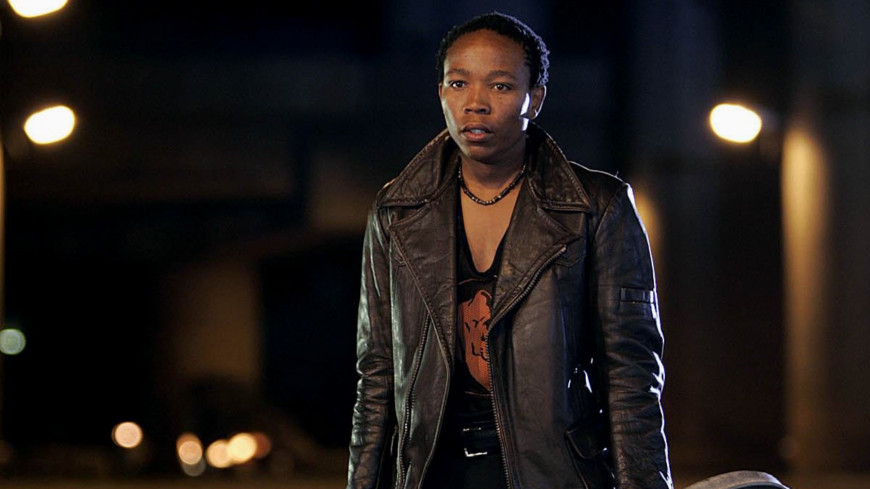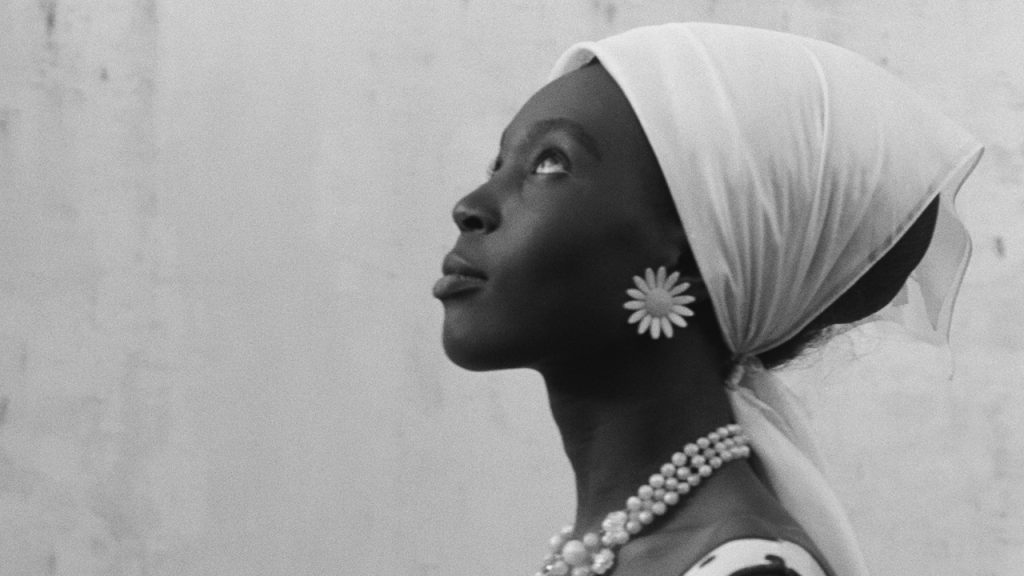African film is a rich and evolving art form that reflects the continent’s diversity and resilience. With critically acclaimed films such as the Oscar-nominated District 9 (2009) and Mandela: Long Walk to Freedom (2013), and renowned filmmakers like Ramaka Keabetswe Rantoa and John Kani, the future of African cinema continues to be promising, offering perspectives and narratives that resonate worldwide.
African Film: Notable Films, Filmmakers, and Visual Storytelling Initiatives
The breathtaking landscapes, rich cultural heritage, and compelling stories of Africa make it an incredible location for filmmaking. Films such as Invictus (2009), The Last King of Scotland (2006), The Constant Gardener (2005), Hotel Rwanda (2004), and Out of Africa (1985) were filmed throughout Africa, bringing international audiences into the sweeping scenery of the beautiful continent.
However, the film industry in Africa has a life of its own, releasing a variety of memorable and compelling films. Major players like Nollywood (Nigeria), South Africa, and Riverwood (Kenya) to emerging regions like Gollywood (Ghana), Swahiliwood (Tanzania), Uganda (Ugawood), and Cameroon (Collywood) continue to contribute significantly to the global film industry, with Africa’s film initiatives helping local storytellers to take the world by storm. Meanwhile, organizations such as the MultiChoice Talent Factory, a partner of NYFA, has a “multi-tiered approach” that includes masterclasses, The MTF Academy, as well as an online portal that provides industry news, networking, and filming opportunities across Africa.
Here are even more examples of the African film industry in action!
(For a whole list of recommended and mentioned films from this article, see our Letterboxd! Please note that for some films, viewer discretion is advised.)
South Africa
In 2005, audiences were brought into the heart of South African cinema with the film Tsotsi. The film was centered around a young Johannesburg gang leader and followed six days in his violent and tumultuous life. Directed by Gavin Hood, Tsotsi won the Academy Award for Best Foreign Language Film.

The local South African film industry includes organizations and studios such as the National Film and Video Foundation (NFVF) in Johannesburg and Cape Town Film Studios, with the SAFTAs, South African Film and Television Awards, which recognizes excellence in the film and television industry every year. Cape Town Film Studios, a local film studio complex, has hosted top productions such as Mad Max: Fury Road (2015), Safe House (2012), and Black Beauty (2020). Sarafina (1992), starring Whoopi Goldberg, was filmed in Soweto, South Africa.
NYFA alums are also making their mark in the South African film industry and beyond, such as 2-Year Acting for Film alum Lunathi Mampofu, who is starring in the new Netflix film Fatal Seduction as Brenda Grootboom. NYFA 1-Year Acting for Film alum Natasha Thahane stars on the 2020 Netflix series Blood and Water, filmed in Cape Town. AFA Acting for Film alum Masali Baduza also starred in the 2022 film The Woman King alongside Oscar, Emmy, and two-time Tony Award-winning actress Viola Davis, which was filmed in South Africa, specifically the Bonamazi Game Reserve.
Botswana
The Gods Must Be Crazy, released in 1980, was shot in Botswana and brought international attention to the region. Since then, filmmaking in Botswana has gained momentum, with film festivals such as the Botswana Film Commission (BFC), organizations such as the Thapong Visual Arts Centre, and various educational institutions that provide resources and training for filmmakers.

In 2024, Steve Harvey, the host of Family Feud, partnered with the Government of Botswana and New York Film Academy (NYFA) for the “Botswana Ignite” initiative. The partnership was designed to support local talent and encourage growth in the Botswana film industry.
“Central to this endeavour are the newly inaugurated Botswana TV Academy, Botswana Wildlife Film School, masterclasses and immersive On-Production Mentorship, all working synergistically to serve as incubators for innovation and excellence in the field,” said Duncan Irvine, the co-founder of Forge Media & Entertainment (Company under Steve Harvey Global).
Senegal
Black Girl is a 1966 French-Senegalese film recognized by the Criterion Collection. Written and directed by Ousmane Sembène, known as the “most renowned African director of the twentieth century,” the film follows a girl from Senegal who becomes a maid to an affluent French family. While a majority of the film takes place in France, the story tackles topics such as race and identity, showing the experience of a young Senegalese woman who is subjected to racism and mistreatment. Viewers should be aware of mature and potentially triggering content in the film.

With celebrated filmmakers like Djibril Diop Mambéty, Moussa Sene Absa, Safy Faye, and Alain Gomis hailing from Senegal, the Senegalese film industry continues to evolve. Thanks to festivals such as the Dakar Court International Short Film Festival and the Moussa Sene Absa Festival, new and emerging filmmakers are bringing fresh perspectives and stories to the global stage.
Nigeria
The Wedding Party (2016) is a Nigerian romantic comedy that became one of the highest-grossing films in Nollywood. “Nollywood”, the Nigerian film industry, is one of the largest and most prolific film industries in the world, known for its rapid production of movies and its significant impact on the African continent and beyond. NYFA alum Kemi Adetiba, a prominent Nigerian filmmaker, television director, and music video director, made her directorial debut with the feature film. NYFA filmmaking and screenwriting alum Banky Wellington (Banky W) also starred in the hit Nollywood rom-com.

From genres like drama, comedy, romance, action, and horror, Nigerian film often incorporates Nigerian culture, traditions, and contemporary societal issues. Filmmakers such as Kunle Afolayan, Tunde Kelani, Genevieve Nnaji, and Kemi Adetiba made their mark in Nollywood with beloved, popular, and award-winning films like Lionheart (2018) and Maami (2011). EbonyLife Studios, based in Nigeria, has produced some of the top-grossing Nigerian films, including Òlòtūré (2020) and Fifty (2015). Ufuoma McDermott, a NYFA acting alum, starred in several Nigerian films including Christmas Is Coming (2017), which she also directed.
Nigeria is also a significant part of the flourishing West African film industry, which includes neighboring countries like Benin and Ghana. NYFA alum Sèdo Tossou, NYFA 1-Year Acting program alum, who is originally from Benin, starred in the Canal+ International TV series Black Santiago Club. The series, filmed in Benin, told the story of the famous Congolese band.
Kenya
Riverwood, Kenya’s film industry, is amongst the largest film industries in Africa. With films like Rafiki (2018), which was initially banned in Kenya due to LGBTQ+ themes, the industry continues to release intriguing and bold stories. Critically acclaimed and award-winning films such as Nairobi Half-Life (2012) and Kati Kati (2016), with the latter winning the FIPRESCI Prize at the Toronto International Film Festival, are the essence of this thriving international industry, due to the hard work, creativity, and tenacity of Kenyan directors like David “Tosh” Gitonga and Mbithi Masya.
Bring Your Unique Story to NYFA
In NYFA’s filmmaking, media, and performing arts programs, students develop essential skills in visual and narrative storytelling while building connections and collaborating with faculty and peers. Our degree programs, conservatories, and workshops are crafted to provide students with the foundation needed to create their original scripts, films, and performances, enabling them to pursue their passion in the entertainment industry.
Ready to learn more on how you can attend NYFA? Request more information today!
